Did you know that 100% of electricity in Iceland comes from renewable energy? 75% of it comes from hydropower plants and the remaining 25% comes from geothermal energy. Geothermal energy is used not only to generate electricity but also for recreation! Bathe in a geothermal pool and feel like a true Icelander!
Iceland is a true trailblazer when it comes to sustainable energy. During this tour, we’ll travel through Iceland to experience a way of sustainable living. We’ll visit a geothermal power plant, green house, and a power station during this sustainability tour with a focus on renewable energy and green power. Finally, we’ll soak in a geothermal pool to relax.
This tour is part of our carbon offset program. You can read more about our sustainability actions here.
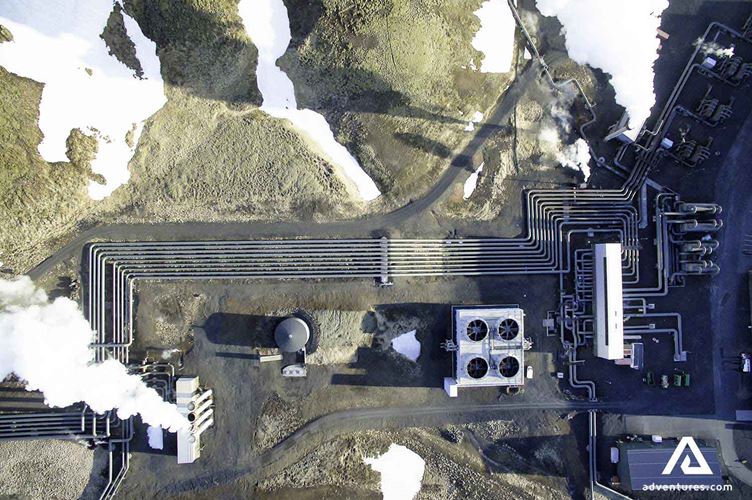
The first stop is electrifying Hellisheidarvirkjun, where the Geothermal Power Plant generates over 300 megawatts of power. The electricity is all produced from geothermal steam rising up from vents in the ground. Located close to highway 1, the plant began operating in 2006, continually increasing in productivity every year since then.
Our stop at the power plant lasts for about 40 minutes and you can find more detailed information about the facility here.
There are many boreholes in the area. To reach the steam, deep in the ground, it is necessary to drill boreholes. At Hellisheidi we will stop and inspect one of 50 such excavations. They range from 1,000 - 2,200 meters and have been constructed to boost power production. The last phase (the 5th), added 2 x 45 MWe and went online in 2011.
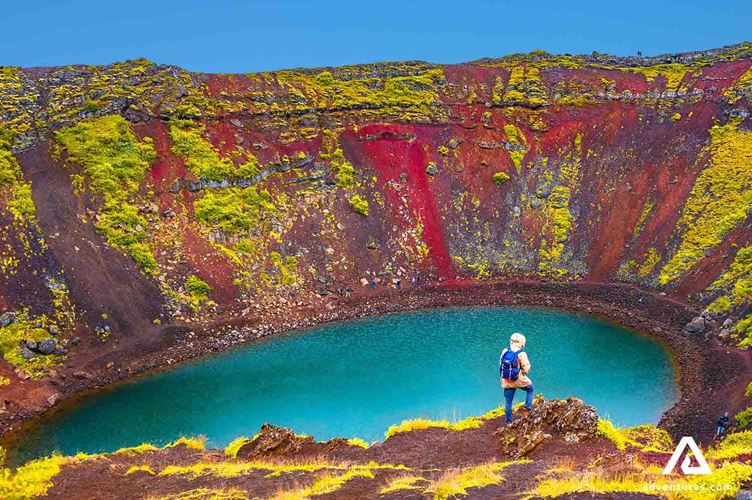
For the second spot, we go to Kerið, a volcanic crater lake located in Grímsnes municipality. First thought to be formed by a huge volcanic explosion (as is usual for volcanic craters), research now tells us Kerið was more likely a cone volcano that erupted and emptied its magma reserve. The cone then collapsed into the magma chamber exposing the strong colored red volcanic rock which now contains the lake. Part of the crater is covered in green moss, and the contrast is quite magnificent.
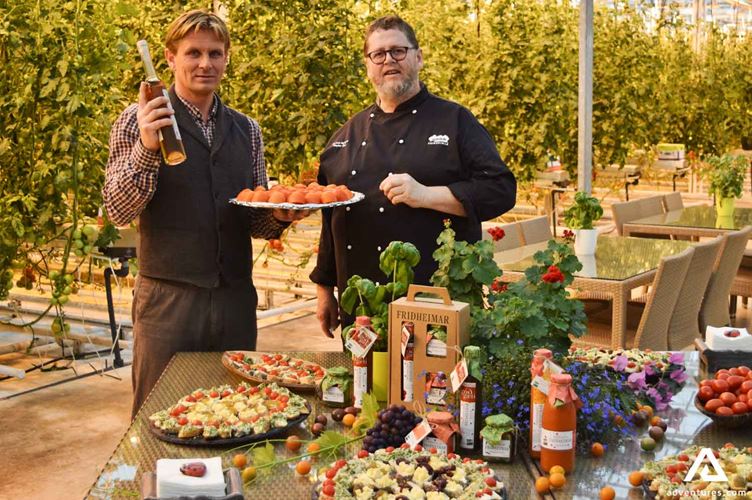
Located on the Golden Circle, only 30 minutes from the famous Gulfoss waterfall, Friðheimar is a family-run tomato farm offering lunch right in the greenhouse. The tomatoes here grow all year round despite the sometimes harsh Icelandic weather—abundant supplies of geothermal water heat greenhouses. Using modern technology and sustainable energy, the greenhouse stays at the perfect temperature, humidity, carbon dioxide, and lighting level all year round.
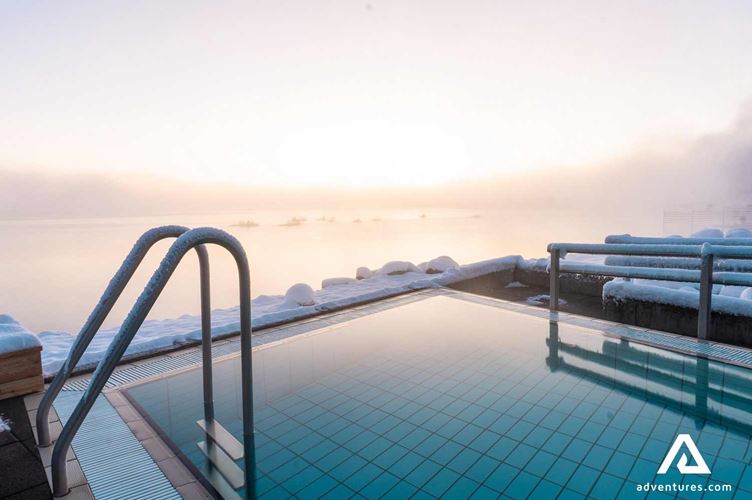
Next stop Fontana, next to Lake Laugavatn. Here we will stop for lunch. You can choose from many different courses and locally produced delicacies. Trout, geothermally baked rye bread, vegetables from an Icelandic greenhouse, sandwiches, and much more. Also, we will go up to the roof and enjoy the magnificent view of the mountains, lakes, and steam from the hot springs. We will also take a short walk around the hot springs in the area. Three hot springs are within walking distance from each other and they all vary in heat and size.
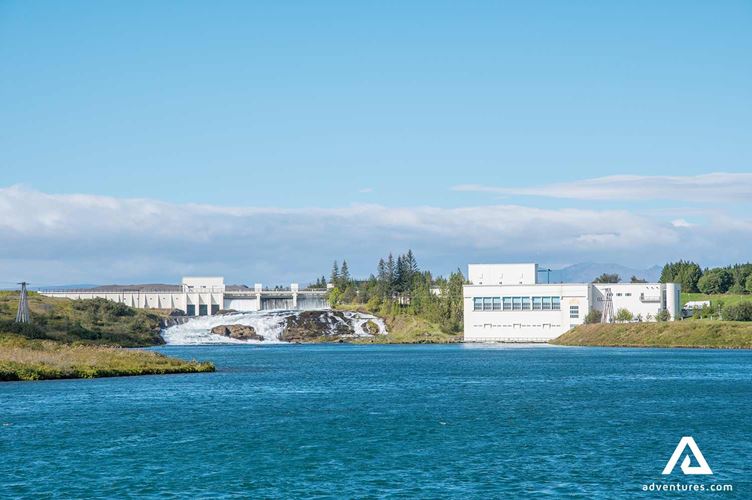
Lastly, we will visit the oldest power station on the river Sog. Ljósafoss Power Station began operating in 1937 with two turbine units and a combined output of 8.8 MW. A third turbine installed in 1944 adding a further 6.5 MW to the station’s output. The facility takes its name from the nearby waterfall Ljósafoss, which appropriately means “Light Falls.” Our visit will include a tour of the establishment, affording a good excuse to inspect the impressive vintage turbine equipment closely. You are also free ask any questions you may have relating to the plant’s operation. The lakes of Úlfljótsvatn and Thingvallavatn are in the immediate surroundings, offering a picturesque setting for this enlightening stop.
Yes, we can design and fully customize this experience for you. We could add more attractions, meals, add additional days, etc. Please contact us and let us know what ideas you have.
Yes, you can rent bathing suits, towels and robes at Fontana Spa.
Yes, the main course for lunch is tomato soup, which is vegan. However, the rye bread contains milk and is usually served with butter and Arctic Char.